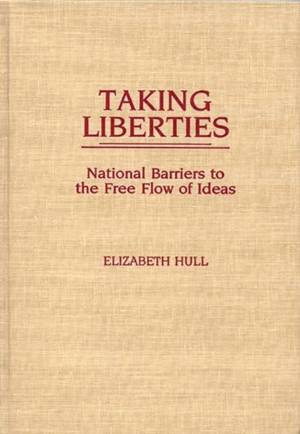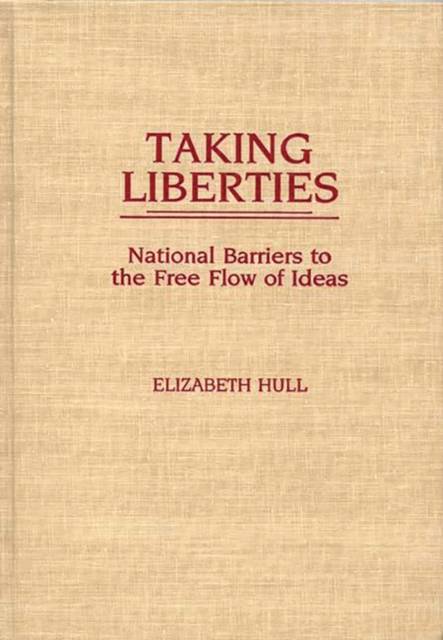
- Afhalen na 1 uur in een winkel met voorraad
- Gratis thuislevering in België vanaf € 30
- Ruim aanbod met 7 miljoen producten
- Afhalen na 1 uur in een winkel met voorraad
- Gratis thuislevering in België vanaf € 30
- Ruim aanbod met 7 miljoen producten
Omschrijving
A groundbreaking contribution to the literature of constitutional law, Taking Liberties is the first book to explore the ways domestic policies deny U.S. citizens access to international sources of information. Author Elizabeth Hull argues that such policies--which include limiting Americans' right to travel, censoring foreign documentaries, suppressing foreign literature considered politically objectionable, preventing controversial aliens from visiting the country, and restricting international scientific exchange--contravene the Constitution's First Amendment, which was designed to prevent government authorities from suppressing information bearing on public affairs. Hull challenges traditional judicial interpretations of First Amendment protection, asserting that in an era of global problems, constitutional protection must be extended to international sources of information that bear upon public issues. Written with a minimum of legal jargon, the volume is an ideal supplemental text for graduate and undergraduate courses in constitutional law.
Among the specific topics Hull addresses are Supreme Court rulings on the rights of noncitizens, the enactment of the McCarran-Walter Immigration Act and its effects in the 1980s, the handling of classified information and assessments by the American Bar Association, and restrictions on the press. She concludes that policies that act to restrict Americans' access to international sources of information jeopardize national welfare because almost every significant problem confronting Americans today--from drugs to the deficit--is global in character. Throughout her work, Hull defines the relevant constitutional issues and discusses legal cases within a larger social and political context. Ample explanatory information is provided for the reader who lacks an extensive legal background.Specificaties
Betrokkenen
- Auteur(s):
- Uitgeverij:
Inhoud
- Aantal bladzijden:
- 173
- Taal:
- Engels
Eigenschappen
- Productcode (EAN):
- 9780275930431
- Verschijningsdatum:
- 15/02/1990
- Uitvoering:
- Hardcover
- Formaat:
- Genaaid
- Afmetingen:
- 164 mm x 245 mm
- Gewicht:
- 476 g

Alleen bij Standaard Boekhandel
Beoordelingen
We publiceren alleen reviews die voldoen aan de voorwaarden voor reviews. Bekijk onze voorwaarden voor reviews.











